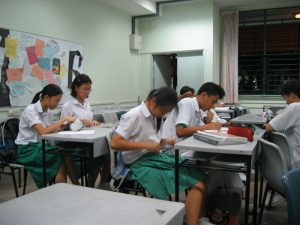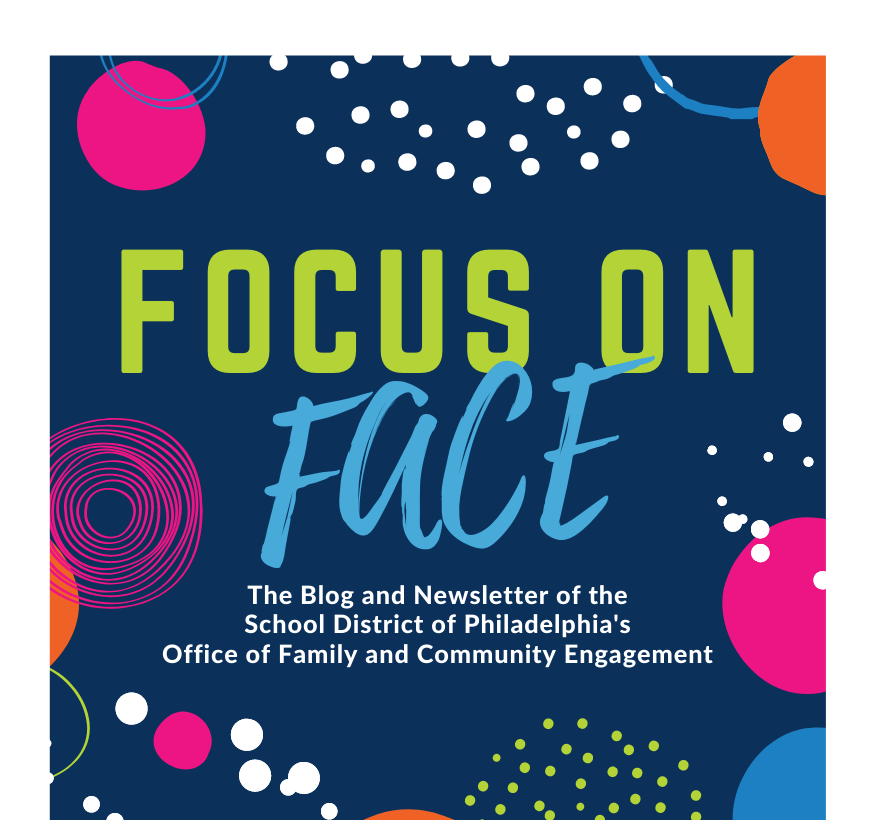
Marina Bay, Singapore.
Singapore prides itself on having a strong and competitive education system. Students in Singapore are the world’s best test takers, particularly showing strong performance on math and science exams compared to the rest of the world. This success can most likely be attributed to the extremely intense and competitive nature of the education system in Singapore. How does this competitive environment affect volunteering in schools? One might believe that such an emphasis on test scores and academic performance leaves little room for engagement with the school, but that isn’t true. The competitive nature of Singapore’s education system actually encourages family engagement. Singaporean schools realize the many benefits that increased family engagement brings. Schools also want to encourage a “sense of service” within their school community and involve parents as much as possible in their child’s education.
What does volunteering in schools look like in Singapore? Volunteering in schools in Singapore is very similar to volunteering in school in America: parent volunteers help the school with anything from creating props for school plays to cleaning up after events. Families are usually eager to help because the Singaporean culture values education and parents believe that any support they can provide will help their child thrive in an extremely difficult and competitive school environment.
While volunteering in schools is a prevalent practice in Singapore, the support that parents provide is more readily seen at home. This is because a couple of decades ago, parents were absolutely reluctant to get involved with the schools at all.
Before 1998, parents did not want to intrude on their children’s educational enrichment and therefore had little involvement with schools. The idea that schools knew best and parents should just leave education to the schools was the dominant way of thinking at the time.

Students at Tajong Katong Secondary School.
In 1998, however, the Ministry of Education, which is the national governing body of all things related to education, established something called Community and Parents in Support of Schools (COMPASS), which was an advisory council formed to focus on “home-school community collaborations.” The main goal of COMPASS was to encourage better communication, more robust cooperation, and a genuine partnership between parents, schools, and communities.
As parents, schools, and communities began to collaborate more, Singapore’s school communities became more cooperative and open—quite a telling correlation! The increasingly competitive nature of Singapore’s education system has also pushed parents into getting more involved. Parents are now investing more in their children’s education than ever before so that their children can be successful.
Sometimes parents take drastic measures, such as volunteering hundreds of hours at a school that their child doesn’t even attend in the hopes of “bumping their child up” to a high admissions phase—a child can be bumped from the third and last admissions phase of a top performing school to the second admission phase (usually reserved for the children of community church members) if their parents volunteer a certain number of hours at the school—or purchasing and moving to homes within the residential boundaries of top performing schools (similar to catchment areas in the School District of Philadelphia).
Parents are becoming more engaged in education because the Singaporean culture sees success in education as the most effective way to move up the social and economic ladder. Just like any parent anywhere in the world, parents in Singapore want their children to be successful and have a great life.
Sources:
“2017 World Best Education Systems-1st Quarter Report” World Top 20 Project, last modified May 5, 2017, https://worldtop20.org/2017-world-best-education-systems-1st-quarter-report.
Thomas Colson, “There are the 11 Most Educated Countries in the World,” Business Insider Nordic, last modified October 3, 2016, https://nordic.businessinsider.com/wef-global-competitiveness-report-most-educated-countries-in-the-world-2016-10/
“Primary 1 registration: Does Volunteering More Give You Priority?” Young Parents, last modified May 17, 2016, http://www.youngparents.com.sg/education/primary-1-registration-does-volunteering-more-give-you-priority/
Maria Manzon et al. “Parent Engagement in Education,” National Institure of Education- Singapore, no. 7 (2015): 22-26, https://www.nie.edu.sg/docs/default-source/nie-working-papers/niewps7_parent-engagement-in-education.pdf?sfvrsn=2

